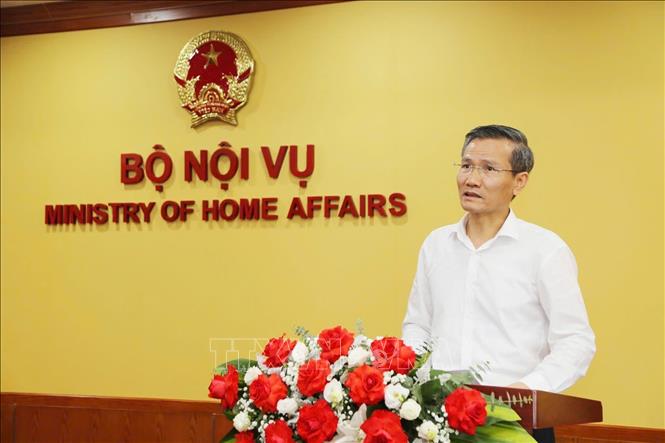
The conference was connected to 82 main points, including 28 points at ministries, branches, and central agencies; 20 points at economic groups and state-owned corporations; 34 points at provinces and centrally-run cities; and nearly 3,500 points at units under ministries, branches, central agencies, and localities.
In his opening speech, Deputy Minister of Home Affairs Cao Huy said that the Conference aimed to disseminate and thoroughly understand the contents of the 2024 Law on Archives and detailed regulations, contributing to raising awareness and responsibility of organizations and individuals in enforcing the law on archives.
The 2024 Law on Archives, passed by the 15th National Assembly at the 7th Session, effective from July 1, 2025, not only inherits the relevant provisions of the 2011 Law on Archives but also adds many progressive contents, meeting the requirements of the fourth industrial revolution and the strong trend of digital transformation, in line with the breakthrough orientation in the application of science and technology according to Resolution No. 57-NQ/TW. Documents detailing the Law on Archives have also been issued by the Government, the Ministry of Home Affairs and ministries and branches on time, ensuring consistency, feasibility and effectiveness in implementation.
Deputy Minister Cao Huy outlined 6 main contents of the 2024 Law on Archives and documents detailing the Law. Accordingly, the Law clearly defines the authority and responsibility for managing archival documents and archival document databases of the Communist Party of Vietnam Archives, the State Archives of Vietnam and archival documents of agencies, organizations and individuals. Archival operations include operations for paper archival documents, documents stored on other information carriers and digital archival documents.
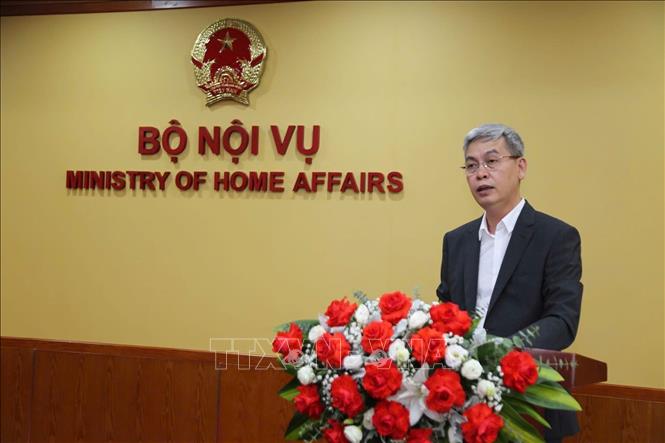
The law also regulates archival documents of special value and the promotion of the value of archival documents; private archives; archival service activities. The law officially recognizes January 3 of each year as Vietnam Archives Day, to honor the role of archival work and recognize the contributions of cadres, civil servants, and public employees in the Archives sector.
Emphasizing that the Conference is an opportunity for agencies and units to research, discuss and grasp the new regulations of the 2024 Law on Archives, thereby organizing effective and synchronous implementation, the Deputy Minister of Home Affairs requested leaders, cadres, civil servants and public employees of the Archives sector to actively discuss and clarify existing problems from practice for proper application, contributing to improving the quality of archival work in the new period.
Providing an overview of the new points of the legal system on archives, meeting the requirements of implementing Resolution No. 57-NQ/TW, Resolution No. 66-NQ/TW, Resolution No. 68-NQ/TW of the Politburo, Director of the Department of State Records and Archives Dang Thanh Tung said that the fourth industrial revolution promotes national digital transformation, the volume of information and documents created in digital form is increasing exponentially, requiring the construction of a modern, safe national archive system capable of managing, preserving and effectively exploiting digital documents. Effective archiving is the foundation of transparent governance, supporting data-based decision-making, preserving national history, and ensuring citizens' access to information.
The 2024 Archives Law adds private archives to the National Archives, ensuring coverage of Vietnam's documents. The State manages and develops private archives; supports the deposit/donation of private documents, especially those of high value, thereby creating a complete historical and social picture; utilizes non-governmental data in digital transformation, considering data as a valuable asset.
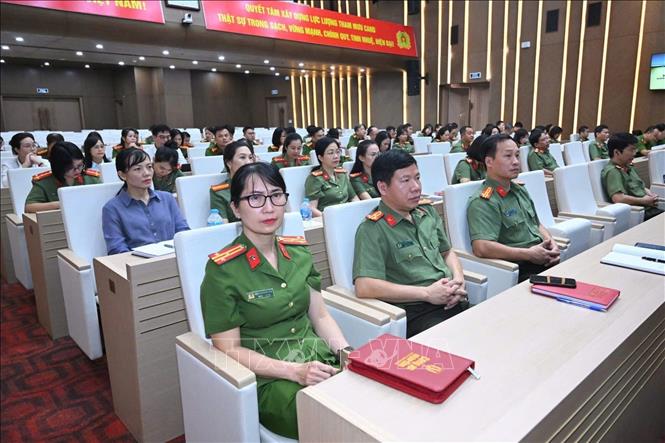
The Law shortens the time limit for submitting documents to historical archives to a maximum of 5 years (compared to 10 years in the 2011 Law); confidential documents submitted after declassification, a maximum of 30 years; requires submission of commune-level documents (People's Council, People's Committee) such as household registration, land, prevents loss of documents, integrates into the national digital archive system, and ensures data integrity.
In addition, the 2024 Archives Law also promotes digital archiving, recognizes digital documents as having legal value as data messages (Clause 3, Article 7), removes legal barriers to digital transformation; promotes the value of archived documents and archive service activities.
Mr. Dang Thanh Tung also mentioned the opportunities from Resolutions No. 57-NQ/TW, Resolution No. 66-NQ/TW, Resolution No. 68-NQ/TW for the Archives sector such as building a synchronous digital archive ecosystem; switching from paper archives to digital information; complying with international standards on data management; recognizing the legal value of electronic documents; private sector participation in archive services; training in digital data management skills...
However, the challenges are that digital archive projects require large capital and long recovery times; lack of high-tech human resources, and differences in remuneration; expanding the communal archives and documents requires large resources and a strong national coordination mechanism; and need for synchronous institutional reform for effective implementation.
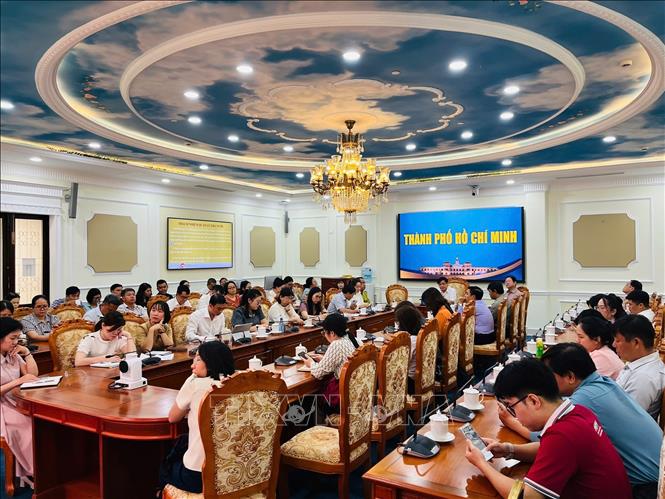
Within the framework of the Conference, leaders of the State Records and Archives Department and related units presented the following topics: New regulations on digital archiving and technology application in performing archival operations; new regulations on archiving paper documents and documents on other information carriers; development of archival human resources; regulations on private archives, archival documents of special value, promoting the value of archival documents and archival service activities.
Source: https://baotintuc.vn/thoi-su/gan-3500-diem-cau-truc-tuyen-tham-gia-hoi-nghi-pho-bien-luat-luu-tru-nam-2024-20250919160752225.htm



![[Photo] Prime Minister Pham Minh Chinh launched a peak emulation campaign to achieve achievements in celebration of the 14th National Party Congress](https://vphoto.vietnam.vn/thumb/1200x675/vietnam/resource/IMAGE/2025/10/5/8869ec5cdbc740f58fbf2ae73f065076)



![[Photo] Prime Minister Pham Minh Chinh chairs the Government's online conference with localities](https://vphoto.vietnam.vn/thumb/1200x675/vietnam/resource/IMAGE/2025/10/5/264793cfb4404c63a701d235ff43e1bd)
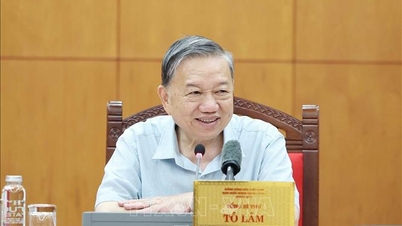
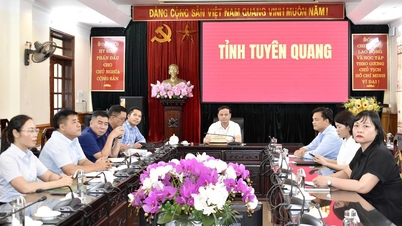

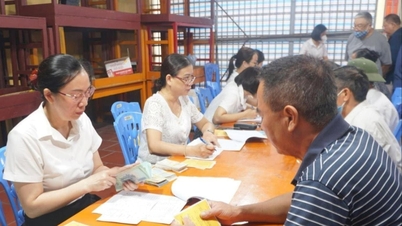



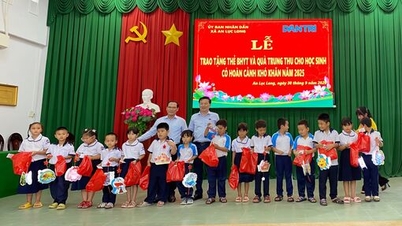




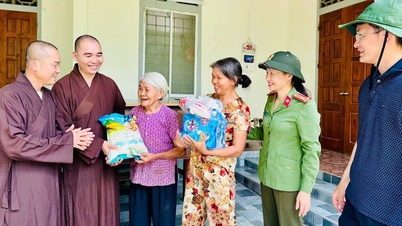


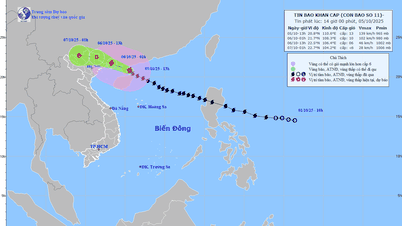





































![[VIDEO] Summary of Petrovietnam's 50th Anniversary Ceremony](https://vphoto.vietnam.vn/thumb/402x226/vietnam/resource/IMAGE/2025/10/4/abe133bdb8114793a16d4fe3e5bd0f12)

![[VIDEO] GENERAL SECRETARY TO LAM AWARDS PETROVIETNAM 8 GOLDEN WORDS: "PIONEER - EXCELLENT - SUSTAINABLE - GLOBAL"](https://vphoto.vietnam.vn/thumb/402x226/vietnam/resource/IMAGE/2025/7/23/c2fdb48863e846cfa9fb8e6ea9cf44e7)

















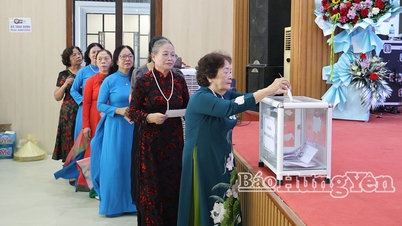

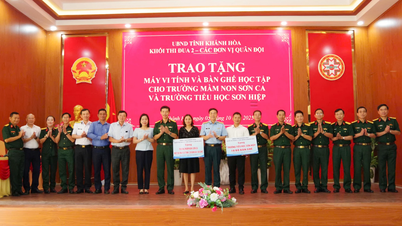














Comment (0)